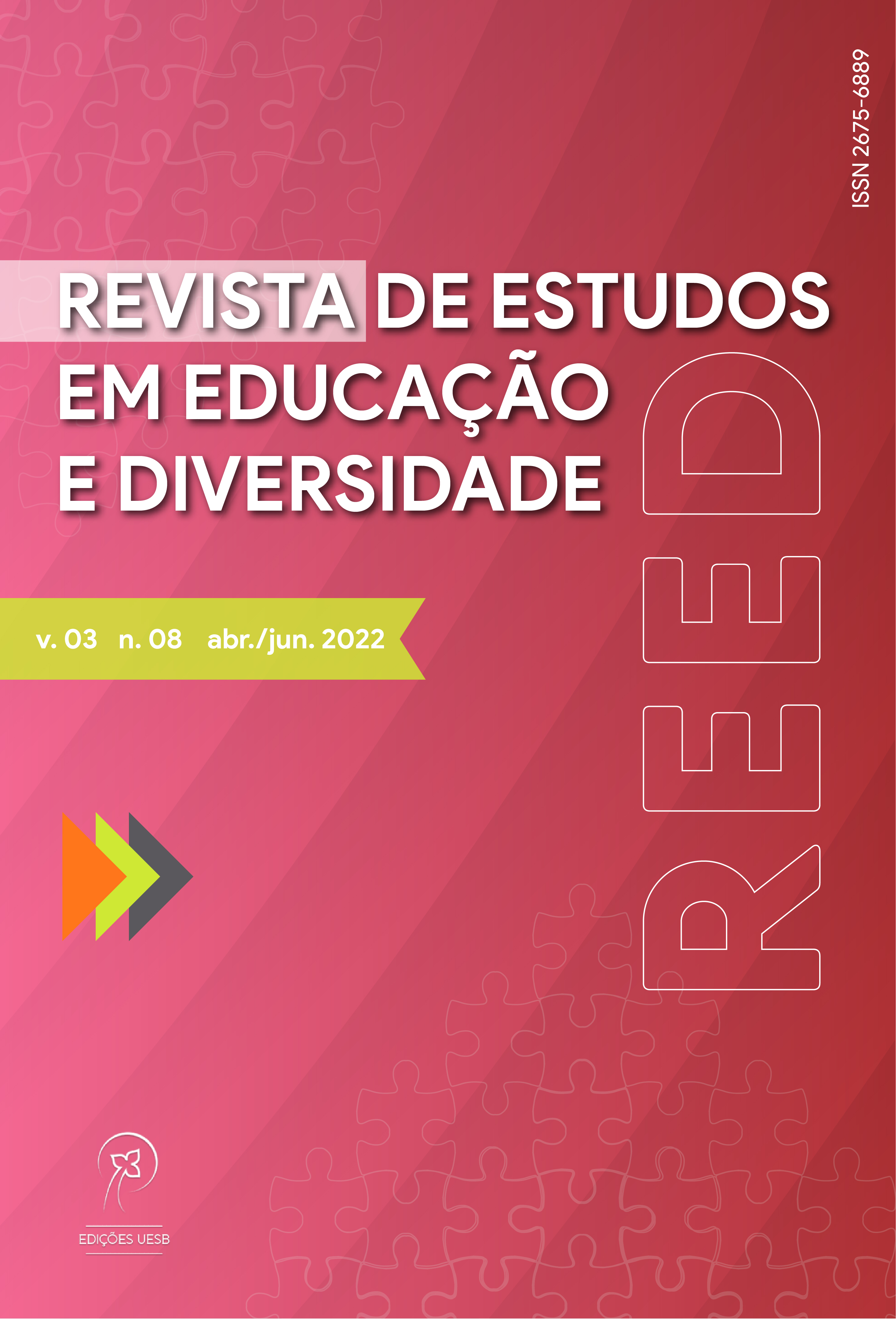ANALYSIS OF THE OFFICIAL DIGITAL EDUCATIONAL PLATFORMS DEVELOPED BY ARGENTINE PROVINCES DURING THE PANDEMIA
DOI:
https://doi.org/10.22481/reed.v3i8.10635Keywords:
Educational platforms - Digital policy - Argentina - Digital culture - Pedagogy.Abstract
This article presents an exploratory study of the digital educational platforms with which the national and provincial states were present in the virtual territory to offer alternatives to the continuity of educational processes in the face of the COVID-19 health emergency in Argentina. In this context, the platforms have a challenge that is technical in nature, but their resolution must be carried out in accordance with other challenges, such as socio-educational and pedagogical ones. When systematizing their characteristics in terms of architecture, components, functionalities and the type of dynamics and interactions they make available, we find that a virtuous technical endowment is not always accompanied by powerful pedagogical resources. The focus of the analysis has to do then with pondering how the proposals condensed in these digital tools fit into the digital culture and if they manage to align themselves with the epistemic shift introduced by ICT. From such analysis the work contributes in specifying the way in which educational inequality is expressed in the plane of its digital infrastructure, product of the irregular arrival to the pedagogical discussion to which they push the arrival of ICT that exists in their provincial educational subsystems.
Downloads
References
ÁVALOS, Beatrice. El liderazgo docente en comunidades de práctica. Educar, vol. 47, nº 2, 2011, pp. 237-252.
BARICCO, Alejandro. The game. Buenos Aires: Anagrama, 2019.
BERNERS-LEE, Tim. On Simplicity, Standards, andIntercreativity. The
W3C Team World Wide Web consortium, no. 3, 1996.
DI PIERO, Emilia; MIÑO CHIAPPINO, Jessica. Pandemia, desigualdad y nivel secundario: trayectorias de las políticas de virtualización a nivel subnacional durante 2020. Propuesta Educativa, No. 54 Vol. 2, FLACSO, Noviembre 2020. Disponible en: encurtador.com.br/gvBM2. Aceso en: 12 abr. 2020.
DUBET, François. El declive de la institución. Profesiones, sujetos e individuos en la modernidad. Buenos Aires: Gedisa, 2006.
FURMAN, Melina; TOBEÑA, Verónica; LITICHEVER, Cecilia; ARROYO, Mariela y ZIEGLER, Sandra. La enseñanza de la biología en la Ciudad de Buenos Aires. Una mirada al interior de las aulas. Asociación de profesores de Biología de la Argentina (AbBiA), Buenos Aires, 2016.
JENKINS, Henry. Entrevista por Hemisferio Sur. FLACSO Argentina, 2017.
LÉVY, Pierre. Inteligencia Colectiva por una antropología del ciberespacio. Washington DC: Organización Panamericana de la Salud. BIREME, 2004. Disponible en: http://inteligenciacolectiva.bvsalud.org. Aceso en: 12 abr. 2020.
MAGGIO, Mariana. Ciclo: nuestros marcos teóricos dialogan (dialogo con Mariana Maggio y Alejandro Piscitelli), 2020. Recuperado de: https://www.youtube.com/watch?v=ybspVFOIXJc. Aceso en: 12 abr. 2020.
MAGGIO, Mariana. Habilidades del siglo XXI. Cuando el futuro es hoy. Buenos Aires:
Fundación Santillana, 2018.
MINISTERIO DE EDUCACIÓN NACIONAL. Marco de Organización de los aprendizajes para la educación obligatoria argentina. Secretaría de Innovación y Calidad Educativa -
Secundaria Federal 2030, 2017. Disponible en:
http://www.bnm.me.gov.ar/giga1/documentos/EL005896.pdf. Aceso en: 12 abr. 2020.
MOROZOV, Evgeny. La locura del solucionismo tecnológico. Buenos Aires: Capital
Intelectual, 2015.
NOGUERA-VIVO, José Manuel. Metamedios y periodismo: revisión panorámica de los nuevos cibermedios, vol. 25, núm. 3, 2016.
O’REILLY, Tim. What Is Web 2.0? Design
Patterns and Business Models for the Next Generation of Software. O’Reilly Network, 2005, Sep. 30. Disponible en: encurtador.com.br/huJQ3. Aceso en: 23 set. 2021.
PERKINS, David. Future Wise: educating our children for a changing world. New York: Jossey-Bass, 2014.
PISCITELLI, Alejandro. Nativos digitales. Dieta cognitiva, inteligencia colectiva y arquitecturas de participación. Buenos Aires: Santillana, 2009.
https://doi.org/10.1080/1369118X.2019.1672766. Aceso en: 23 set. 2021.
PISCITELLI, Alejandro. Prólogo. en Cristóbal Cobo Romaní y Hugo Pardo Kuklinski, Planeta Web 2.0. Inteligencia colectiva o medios fast food. Barcelona, México DF: Grup de Recerca d’Interaccions Digitals, Universitat de Vic, FLACSO México, 2007.
SERRES, Michel. Pulgarcita. Buenos Aires: FCE, 2013.
STEINBERG, Cora; TIRAMONTI, Guillermina; ZIEGLER, Sandra. Políticas provinciales para transformar la escuela secundaria en la Argentina. Avances de una agenda clave para los adolescentes en el siglo XXI. UNICEF-FLACSO: Buenos Aires, 2019.
TERIGI, Flavia. Los saberes de los docentes: formación, elaboración en la experiencia e investigación: documento básico. Buenos Aires: Santillana, 2012.
TIRAMONTI, Guillermina; TOBEÑA, Verónica. Políticas educativas para el mundo digital. Espacios en blanco. Serie indagaciones. v. 2, n. 31, UNCPBA, abril 2021, pp. 309-325. Disponible en: encurtador.com.br/iARVW. Aceso en: 23 set. 2021.
TOBEÑA, Verónica. Pandemia. Una nueva oportunidad para sintonizar a la escuela con nuestro tiempo. Propuesta Educativa, v. 2, n. 54, FLACSO, Noviembre 2020, pp. 6-17. Disponible en: encurtador.com.br/qvKS8. Aceso en: 23 set. 2021.
UNICEF - FLACSO ARGENTINA. Políticas educativas para transformar la educación secundaria. Estudio de casos a nivel provincial (primera etapa). Buenos Aires, 2017.
Disponible en: http://www.unicef.org/argentina/sites/unicef.org.argentina/files/2018-
/Educacion_UNICEF_Flacso_PoliticasEducativas.pdf. Aceso en: 23 set. 2021.
WENGER, Etienne. Communities of practice: a brief introduction, 2014. Disponible en:
encurtador.com.br/jryBR. Aceso en: 23 set. 2021.
Downloads
Published
How to Cite
Issue
Section
License
Copyright (c) 2022 Revista de Estudos em Educação e Diversidade - REED

This work is licensed under a Creative Commons Attribution 4.0 International License.
You are free to:
Share - copy and redistribute the material in any medium or format; Adapt - remix, transform, and build from the material for any purpose, even commercially. This license is acceptable for Free Cultural Works. The licensor cannot revoke these freedoms as long as you follow the terms of the license.
Under the following terms:
Attribution - You must appropriately give credit, provide a link to the license, and indicate if any changes have been made. You may do so in any reasonable way, but not in a way that suggests that you or your use is endorsed by the licensor.
There are no additional restrictions - You cannot apply legal terms or technological measures that legally restrict others to make any use permitted by the license.






